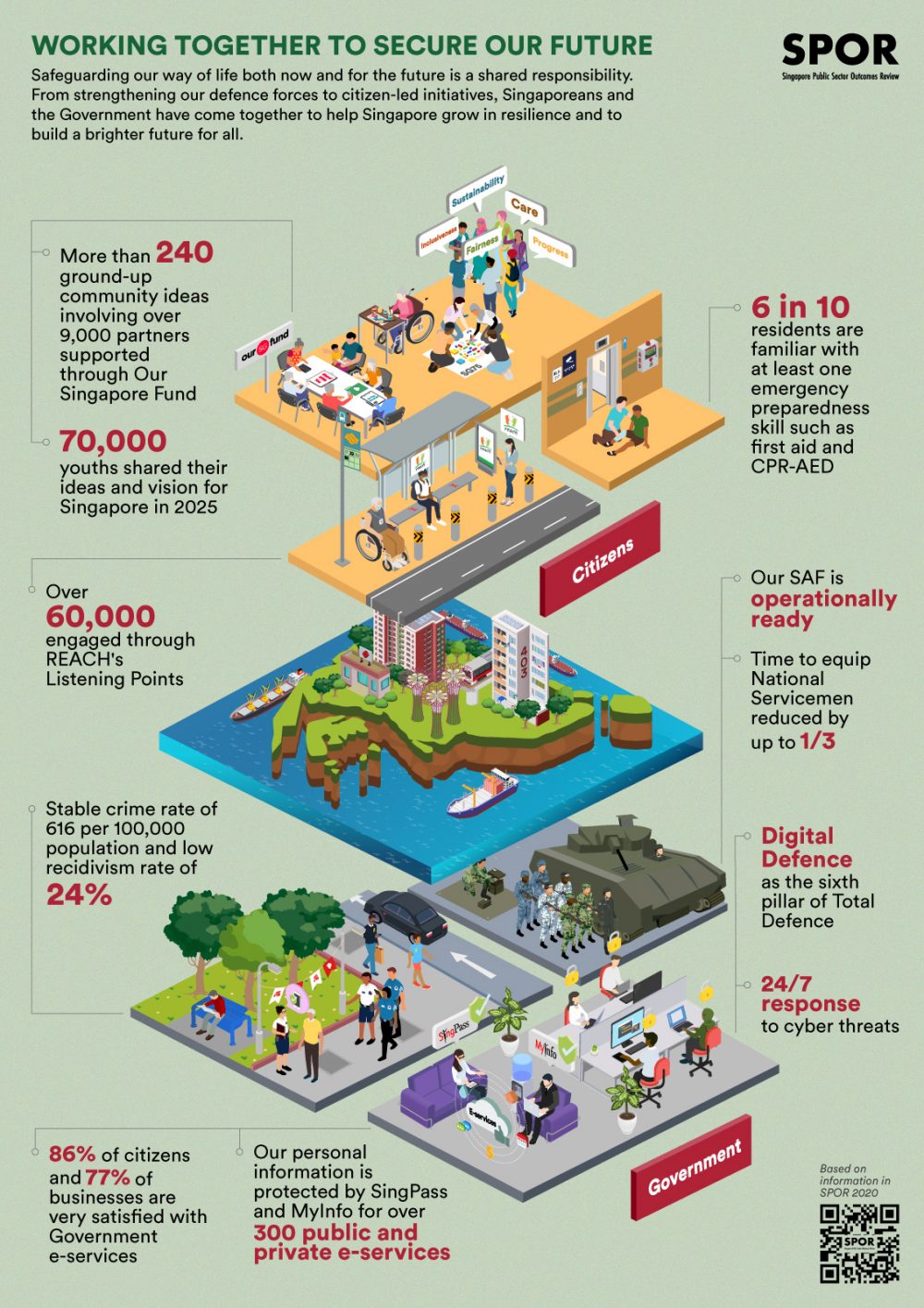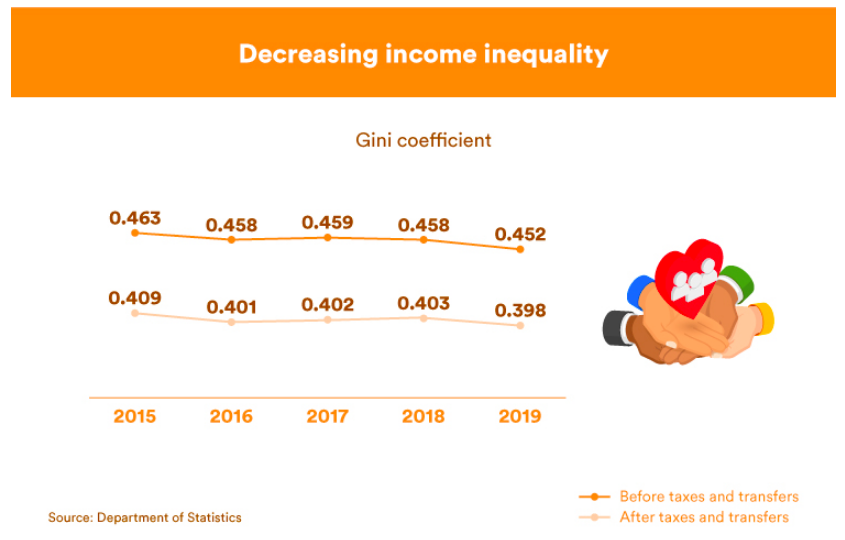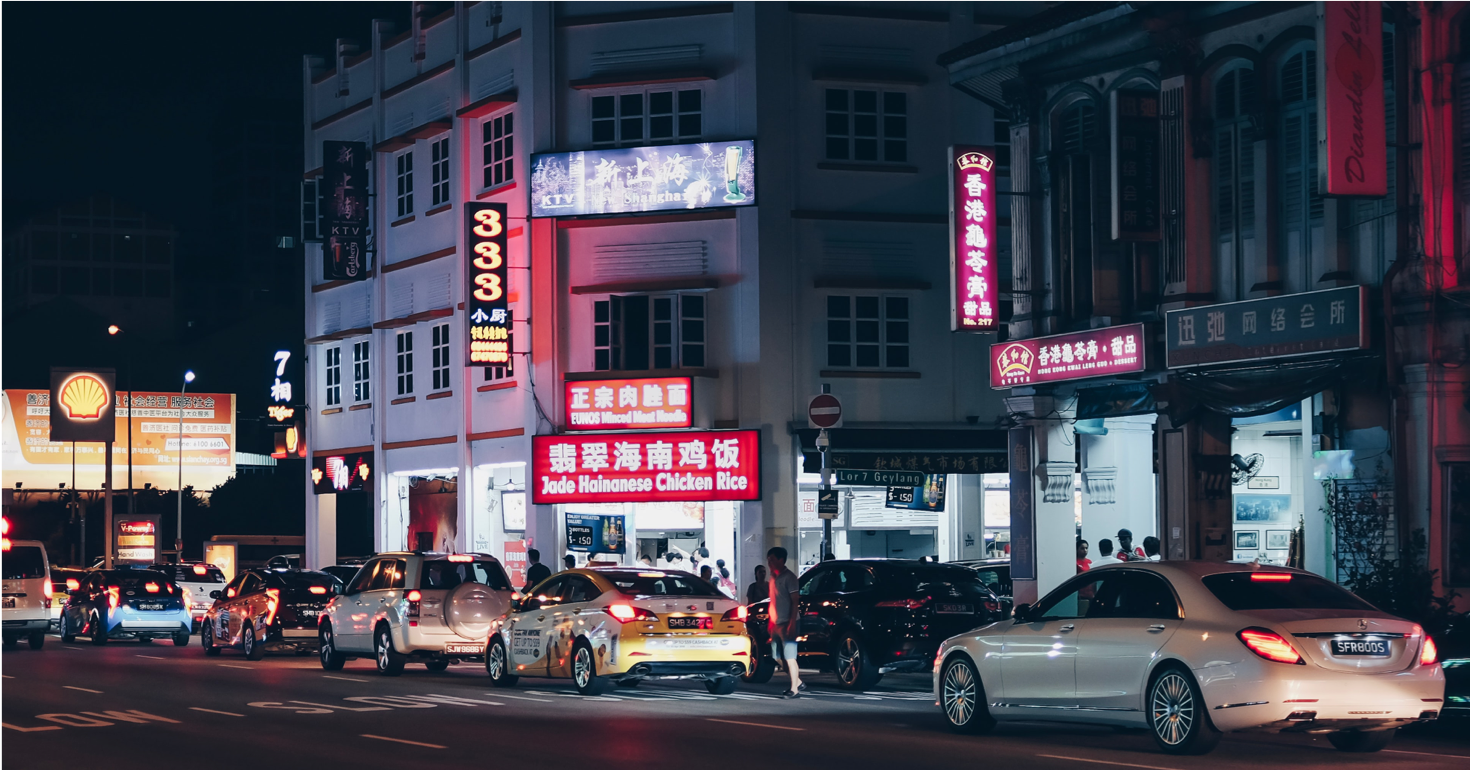The Singapore Public Sector Outcomes Review (SPOR) is an intriguing snapshot of a nation's progress.
Coordinated by the Permanent Secretary of the Ministry of Finance (MOF) and published every two years, it is a whole-of-government effort that tracks how Singapore and Singaporeans are doing in several key areas of national interest, such as life expectancy, education and ease of doing business.
Think of it as a bi-annual check-up on the health of the country, for the public and businesses.
MOF released its 2020 SPOR, which you can find here. You can also find the previous SPORs from earlier years, if you want to track progression in a particular metric.
Five themes
This year's SPOR is divided into five "themes".
- Opportunities for all
- Smart and sustainable living
- Safeguarding our way of life
- Growth, competitiveness, sustainability
- Ease of doing business
And each theme has a number of related points that are elaborated in a write-up.
For example, 'Opportunities' includes things like health and wellness, education and social safety nets. For the business side, metrics such as infrastructure and security are evaluated.
Here's a sample of the kind of statistics you can find for each point:
"Singaporeans can expect to live long and in good health. Our life expectancy is amongst the best in the world, at 81.4 and 85.7 years for males and females respectively in 2019.
Our Health Adjusted Life Expectancy at birth, which is the number of years a person is expected to live in good health, is also one of the highest in the world at 72.6 years for males and 75.8 years for females in 2017."
And you can also find useful infographics that sum up some of these statistics, like this one about the public contributing to government initiatives.
 Infographic from MOF.
Infographic from MOF.
Verdict - Pretty, pretty, pretty good
There are definitely things that Singaporeans can be proud of.
For one, we have been ranked as the safest nation in the world by Gallup's Global Law and Order Index for the seventh year running.
Over 90 per cent of children are enrolled in pre-school by the age of five, with the government committed to ensuring that every parent who wants a pre-school place for their child can get one.
Income inequality was another focus, with Singapore's GINI coefficient dipping under 0.4 to 0.398 for the first time in five years, after factoring in taxes and transfers.
 Screen shot from MOF.
Screen shot from MOF.
Over on the business side, Singapore remains a great place for doing business, and the most open and competitive economy in the world.
It takes just 1.5 days to start a new business, and new rules such as the Accelerated Initiative for Artificial Intelligence (AI) allows innovators to obtain an AI-related patent in just six months, down from four years — definite necessity in a field as fast-moving as AI.
Could do better
But the review isn't all-encompassing.
While the review isn't entirely positive, showing a rise in scam calls and diabetes rates, it could do with showing a few more areas where society could improve.
For example, while the SPOR review touted metrics such as employment and investing in worker skills, a recent survey by Kisi claimed that Singapore is one of the most overworked cities in the world, and we could do better in creating work-life balance.
After all, a review is a chance to hold an honest assessment of both successes and failures over the years.
It also lacks in-depth analysis on certain areas that might be of interest to the public, such as sections on mental health, and racial and gender diversity.
Elephant in the room
And of course, there's one huge cloud looming over this look at records set in 2019.
Covid-19 is a tsunami poised to wash over achievements in things like GDP growth, employment and incomes, all of which have been greatly disrupted by the pandemic.
Although we won't know the exact impact on public sector outcomes until two years later, this review includes a number of measures which Singapore and Singaporeans have enacted to help one another tide through the crisis.
More than 28,000 grassroots, public service and citizen volunteers stepped up to assist in the various nationwide mask collection exercises, distributing a total of 13.2 million masks to residents at the Community Clubs and Centres (CCs), as well as the Residents' Committee Centres, with masks delivered to vulnerable residents.
More than 1,600 citizens also volunteered as SG Clean Ambassadors, and over 1,500 grassroots leaders and volunteers have taken on roles as Safe Distancing Ambassadors.
Partnership of government and the public
In addition, the review also praised the role of personal responsibility in tackling the Covid-19 pandemic, as individuals largely abided by the national public health measures, such as minding personal hygiene, wearing masks and participating in the TraceTogether programme in support of national contact tracing efforts.
And in a heartening sign, Singaporeans also contributed financially to the nationwide effort, donating S$90 million to various community platforms from Jan. to May 2020.
Commenting on the report, Head of Civil Service Leo Yip said the section titled "Emerging Stronger As One" recognises the partnership between the government and the people in the collective fight against the pandemic, and added:
"It highlights Singaporeans’ strong spirit of care and concern for one another as well as how working together has enabled us to serve those in need and overcome this crisis as one.
Whether in crisis or in normalcy, the Public Service will continue to strive for better outcomes for our citizens and our businesses. We will continue to partner with Singaporeans to build a better future Singapore society and economy, and to emerge stronger from this crisis."
We deliver more stories to you on LinkedIn
Top image from Handy Wicaksono via Unsplash.
If you like what you read, follow us on Facebook, Instagram, Twitter and Telegram to get the latest updates.
